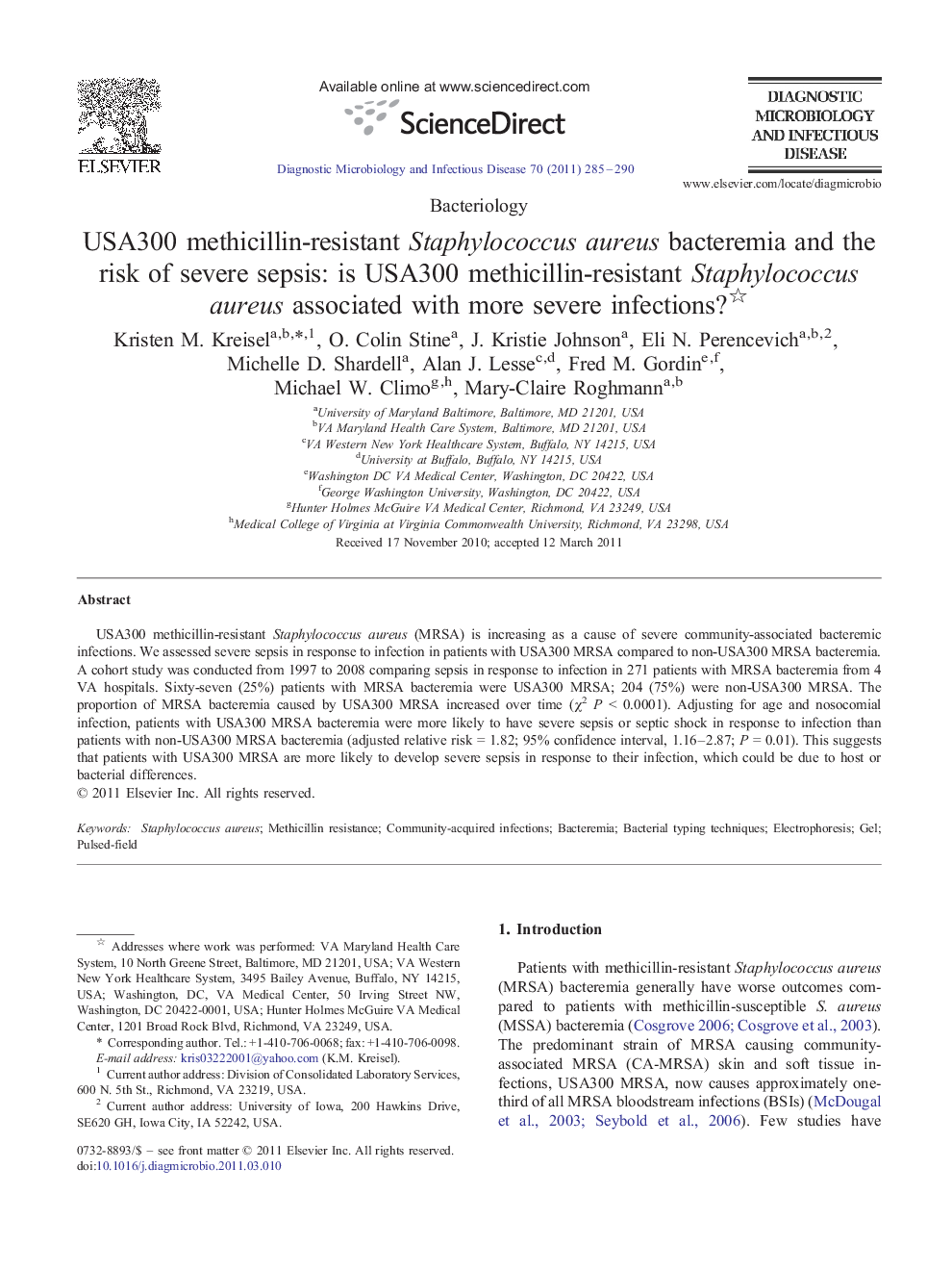| Article ID | Journal | Published Year | Pages | File Type |
|---|---|---|---|---|
| 3347440 | Diagnostic Microbiology and Infectious Disease | 2011 | 6 Pages |
USA300 methicillin-resistant Staphylococcus aureus (MRSA) is increasing as a cause of severe community-associated bacteremic infections. We assessed severe sepsis in response to infection in patients with USA300 MRSA compared to non-USA300 MRSA bacteremia. A cohort study was conducted from 1997 to 2008 comparing sepsis in response to infection in 271 patients with MRSA bacteremia from 4 VA hospitals. Sixty-seven (25%) patients with MRSA bacteremia were USA300 MRSA; 204 (75%) were non-USA300 MRSA. The proportion of MRSA bacteremia caused by USA300 MRSA increased over time (χ2P < 0.0001). Adjusting for age and nosocomial infection, patients with USA300 MRSA bacteremia were more likely to have severe sepsis or septic shock in response to infection than patients with non-USA300 MRSA bacteremia (adjusted relative risk = 1.82; 95% confidence interval, 1.16–2.87; P = 0.01). This suggests that patients with USA300 MRSA are more likely to develop severe sepsis in response to their infection, which could be due to host or bacterial differences.
